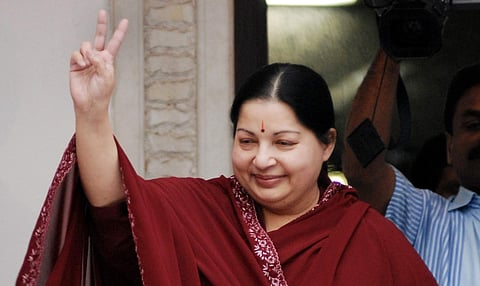

CHENNAI: The 1991 parliamentary elections were held close on the heels of the assassination of former Prime Minister Rajiv Gandhi when he was in Tamil Nadu to campaign for AIADMK-Congress alliance.
The sympathy wave not just helped Congress emerge as the biggest party in parliament and form government at the Centre. In view of the Congress-AIADMK alliance, J Jayalalithaa became the first elected women Chief Minister of Tamil Nadu.
The premature elections for Parliament was necessitated due to collapse of Chandrasekar-led Union government due to withdrawal of support by Rajiv Gandhi’s Congress. In Tamil Nadu also, the DMK government was dismissed by Chandrasekar’s government at the insistence of the Congress, a close ally of AIADMK.
After the massive victory of AIADMK-Congress alliance in the 1989 Lok Sabha polls, Jayalalithaa and Rajiv Gandhi were confident of repeating the victory.
In the meanwhile, the country witnessed two major politically influential issues. One was the VP Singh government’s implementation of Mandal Commission recommendations which paved the way for 27 per cent reservation quota for backward classes. This caused much resentment among the forward classes and BJP, which was supporting the VP Singh government. The second was the disputed Babri Masjid at Ayodhya. BJP leader LK Advani’s rath yatra created much turbulence and divided the country on communal lines causing riots.
In Tamil Nadu, another perception was the close association between LTTE, the Tamil separatist militant group in Sri Lanka, and DMK. Vaiko, then V Gopalsamy, a Rajya Sabha member of DMK, went to Sri Lanka to meet LTTE leadership supposedly without getting permission from the party leader and Chief Minister M Karunanidhi. Jayalalithaa strongly opposed this and raised concerns that this would lead to law and order disturbances in the State. This was one of the reasons cited by the Centre to dismiss the DMK government.
In the backdrop, Rajiv Gandhi came to Tamil Nadu to address public at Sriperumbudur on May 21, 1991. He was assassinated by a suicide bomber. In the aftermath, the blame fell on DMK and mobs vandalisd the properties of DMK cadre and functionaries. The poll date was postponed to June 15, 1991 due to the situation.
When the poll results were out, Jayalalithaa’s AIADMK-led alliance swept all the 39 Lok Sabha seats and also won 224 seats out of 234 in the Assembly. Jayalalithaa became the first elected woman Chief Minister of Tamil Nadu in 1991.